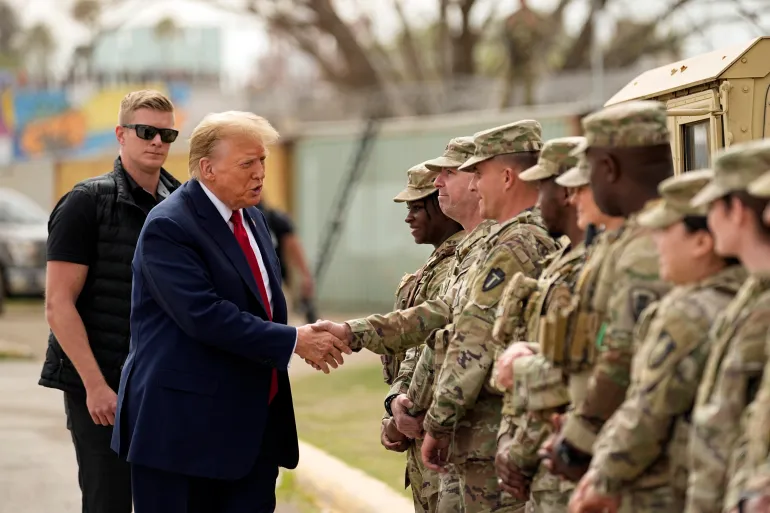Former President Donald Trump has confirmed that he plans to declare a national emergency and use military resources to carry out mass deportations of undocumented migrants once he takes office in January. Speaking on Truth Social, Trump responded to reports about his immigration plans, stating that his administration is preparing large-scale deportation efforts as part of what he calls a necessary response to the situation at the U.S.-Mexico border.
Although U.S. law generally prevents active-duty military forces from enforcing domestic laws under the Posse Comitatus Act, Trump could still deploy the National Guard or frame military involvement as a national security measure. Immigration experts have pointed out that while soldiers may not directly detain migrants, they could be used for logistical support, such as helping with transportation, setting up holding facilities, and securing border areas. Former acting ICE Director Ron Vitiello suggested that military personnel might assist in these ways while leaving enforcement duties to immigration officers.
Trump has also indicated that he might invoke the 1798 Alien Enemies Act, which allows the U.S. government to detain or deport citizens of foreign nations considered threats during wartime. However, this law would require Congress to formally declare war, raising questions about how Trump intends to apply it. Some speculate that he could target specific groups, such as criminal gangs, or designate certain countries, like Venezuela, as threats to justify deportations.
To strengthen his immigration policies, Trump has appointed former ICE Director Tom Homan as his “border czar.” Homan has vowed to take aggressive action against sanctuary cities that refuse to cooperate with federal immigration enforcement. His proposals include cutting federal funding to cities that provide protection to undocumented migrants and fast-tracking deportation proceedings for individuals considered national security threats.
Trump’s immigration agenda is expected to face strong legal challenges and opposition from civil rights organizations, immigrant rights groups, and Democratic-led states. Sanctuary cities, which have long resisted federal immigration crackdowns, are likely to push back against any attempts to force local law enforcement agencies to comply with mass deportation efforts. Critics argue that Trump’s plan could violate constitutional rights and lead to widespread fear among immigrant communities.
As his administration moves forward with these plans, the political and legal battles over immigration policy are expected to intensify. While Trump’s supporters see his approach as necessary to secure the border, opponents warn that mass deportations could create humanitarian crises and damage America’s global reputation.

